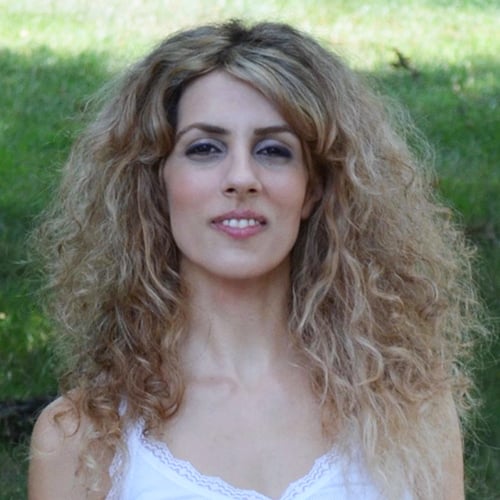More than 50% of Americans will be diagnosed with a mental illness at some point in their lifetimes, and one in five will experience mental health challenges, such as anxiety and depression, in any given year. Left untreated, mental illness results in everything from lost productivity and bad relationships to substance use disorders and suicide. Identifying those at risk for or suffering from mental disorders is the first step in providing help.
Ayah Zirikly believes that natural language processing (NLP) can be used in the fight against mental illness. A new research scientist with both the Center for Language and Speech Processing (CLSP) and Malone Center for Engineering in Healthcare, Zirikly builds AI-enabled models that analyze social media posts and word usage patterns to predict mental health disorders and symptoms. She also has developed models that use phrases and words to identify social media users at risk for suicide.
“As a natural language processing practitioner active in the health domain in general, Hopkins offers the best researchers and projects that align with my focus,” said Zirikly, who joined JHU from the National Institutes of Health, where she recently completed her postdoc. “Furthermore, working with the best researchers in the world will give me the opportunity to further improve my research, in addition to deepening my understanding of how NLP can help in the health domain to move this domain forward.”
Zirikly’s research focuses on how social media can provide clinicians with a better understanding of patients, with the goal of improving mental health access and treatment plans. Her method involves analyzing the Twitter and Reddit posts to identify individuals suffering from a mental health disorder. Furthermore, she is interested in studying the language used to understand what factors and topics affect these populations, and to alert high-risk users (e.g. suicidal) to get help in a timely manner.
“Our hope is that this will aid clinicians focused on helping people suffering from mental health disorders by using our work to get a better sense of what is going on with the patient in their daily life, which can be difficult to assess solely from in-person sessions with the patient,” Zirikly said. “It also gives the clinician the ability to take actions when there is something urgent that requires immediate attention.”
Zirikly’s ultimate goal is to enable more personalized mental health treatments, as well to reveal important information about mental health disparities, particularly in terms of access to health care services by underserved and minority populations.
“The analysis we get from our research helps us better understand populations and what they suffer from, which should lead us to become more aware of the triggers within these populations for certain mental health disorders,” Zirikly said. “For instance, socioeconomic factors play a big role in certain mental health disorders, with an example being lower perception of social status potentially leading to higher depression levels.”
Zirikly plans to partner in her work with Mark Dredze, the John C. Malone associate professor in the Department of Computer Science who is also a CLSP member, whose research focuses on social media and how it can be used for public health information.
“Ayah brings a wealth of experience in computational methods for mental health to both the Malone Center and CLSP,” Dredze said. “In addition to working on these topics during her PhD, she spent time at NIH developing hands-on experience in public health and medicine. She is well positioned to lead a new effort in developing computational tools for social media and clinical data, applying the latest methods from NLP to important problems in health.”
For Zirikly, coming to Hopkins represents an opportunity to experience tremendous growth, and to take a step forward in her career.
“JHU is one of the top universities in the world with high impact research in both health and computer science, which makes it the perfect place to conduct research in the area of NLP for health,” Zirikly said. “I am super excited to join both CLSP and the Malone Center. What a privilege it is to be part of this community and to work with Dr. Dredze on cutting-edge research. I am confident that I will learn so much and grow significantly here.”
-Story by Wick Eisenberg
